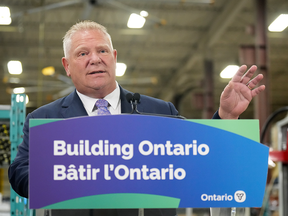Indonesian Consumers, Fuel Retailers, and Palm Oil Producers Face Increased Expenses
Indonesian consumers, fuel retailers, and palm oil producers are facing higher costs due to the government’s plan to expand its biofuel program. The price of tropical oil has surged, making it more expensive for the country to implement its blending mandate.
The Biofuel Program: A Key Component of Indonesia’s Energy Strategy
The Indonesian government plans to increase the volume of palm oil used in its biofuel mix from 35% to 40% starting next year. This move is aimed at reducing the import of fossil fuels and promoting sustainable energy production. However, the higher cost of palm oil has made the subsidized biodiesel more expensive.
Palm Oil Prices: A Major Concern for Indonesia’s Biofuel Program
The price of palm oil has increased significantly in recent months, making it challenging for the government to maintain its subsidies on biodiesel. The funds collected from levies on palm oil exports are likely to fall short given current prices. To address this issue, the Indonesian government plans to raise the export levy.
Dida Gardera Speaks Out: The Consequences of Higher Palm Oil Prices
Dida Gardera, a member of the steering committee that directs the Oil Palm Plantation Fund Management Agency, has expressed concerns about the higher cost of palm oil. According to Gardera, the agency is still preparing a revision to the export levy. However, even with the increased levy, the funds collected may not be sufficient to cover the costs of subsidizing biodiesel.
The B40 Biodiesel Program: A New Subsidy for Public Services
Gardera has announced that the B40 biodiesel will only be subsidized for public services, which account for about 7.5 million kiloliters. This means that fuel retailers will have to absorb the increased costs or pass them on to consumers.
Implications of Higher Palm Oil Prices: A Burden on Indonesian Consumers and Businesses
The higher cost of palm oil is likely to affect Indonesian consumers and businesses in several ways:
- Increased Fuel Costs: The increased cost of biodiesel will lead to higher fuel prices for consumers.
- Reduced Competitiveness: The higher cost of palm oil may reduce the competitiveness of Indonesian industries, particularly those that rely heavily on palm oil as a raw material.
- Economic Consequences: The higher cost of palm oil may have broader economic implications, including reduced economic growth and increased inflation.
Conclusion
Indonesia’s biofuel program faces significant challenges due to the surge in palm oil prices. While the government’s plan to increase the volume of palm oil used in its biofuel mix is aimed at reducing fossil fuel imports, the higher cost of palm oil has made the subsidized biodiesel more expensive. The Indonesian government must carefully consider the implications of its policies and find ways to mitigate the impact of higher palm oil prices on consumers and businesses.
Sources:
- Bloomberg
- Oil Palm Plantation Fund Management Agency



